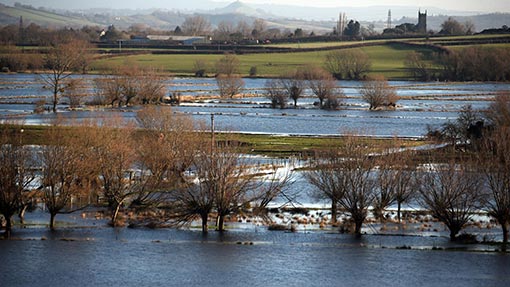Millions unpaid in farm flood recovery fund fiasco

Defra has paid out less than £200,000 of a £10m government funding pot earmarked for farmers affected by last winter’s flooding, Farmers Weekly can reveal.
Seven months on from the winter floods that devastated large swathes of farmland on the Somerset Levels and across the Thames region, farmers are trying hard to get their businesses back on track.
But many flood-hit farmers, who were already struggling with cashflow, are taking on more debt to pay for work up front to repair flood-ravaged fields, reseed fields, renew farm infrastructure and replace damaged machinery.
The Farming Recovery Fund closed for applications in late June. The government made £10m of taxpayers’ money available in the funding pot, but farmers applied for £5,533,034 before the deadline closed.
After reviewing the applications, Defra has so far approved £4,561,307 of payments to flood-hit farmers.
But up until Saturday 13 September, only £193,180 of the approved funds had been paid into farmers’ bank accounts.
A Defra spokeswoman blamed EU rules for the time it was taking to pay farmers.
“Farmers who applied for the grants and have had their applications accepted have got to complete the work and submit the receipts before they paid,” she explained.
“Under EU rules, farmers cannot receive a grant in advance of completing the work. These things take time and farmers must complete all the work correctly.”
Read also: £20m wetland habitat branded a ‘waste of money’
Defra said farmers had submitted receipts amounting to £278,506. Of this, £193,180 has been paid out. The remainder will be paid out by the end of September, said the spokeswoman.
She added: “Everything is being paid retrospectively. Therefore, we are still waiting for almost all the farmers to do the work and send in the receipts before they can get the payment.
“We would encourage them to get the work done and send the receipts in so we can get the payments out.”
Somerset beef and sheep farmer John Hebditch, who farms at North Curry, said Defra has approved £15,000 of a £20,000 application for grant support he submitted in the second round.
The money will be used to pay for costs incurred to reseed fields, replace damaged gates and buy a new rotavator to cultivate flood-damaged land.
“We haven’t received any of the money yet. We’ve got to do the work, then apply for it. It’s a three-stage process,” said Mr Hebditch.
“It would have been nice to have been in a system whereby they paid some of the money upfront, so that we could actually pay off some working capital. But they haven’t done that. Defra says they are working under EU rules, but they need to understand the farmer as well.
“The irony is, that the very few farmers who are affected have probably got a cashflow problem. Yet they are the ones that have to find the money.”
Mr Rayner hit out after Defra rejected an application for a £5,000 grant to cover flood damage at Rayner Ashby Farms, in Colnbrook, Slough.
He said the decision had left him more than £3,000 out of pocket after he decided to carry out extensive subsoiling, ditch clearing and road repairs on the flood-affected farm.
However, on a more positive note, although his application was rejected in phase one, Defra has now told him that part of his application was successful in phase two. Therefore, he will receive a grant of £651.63 to cover “restoration of 7.49ha of arable land by subsoiling”.
Read more news stories like this
